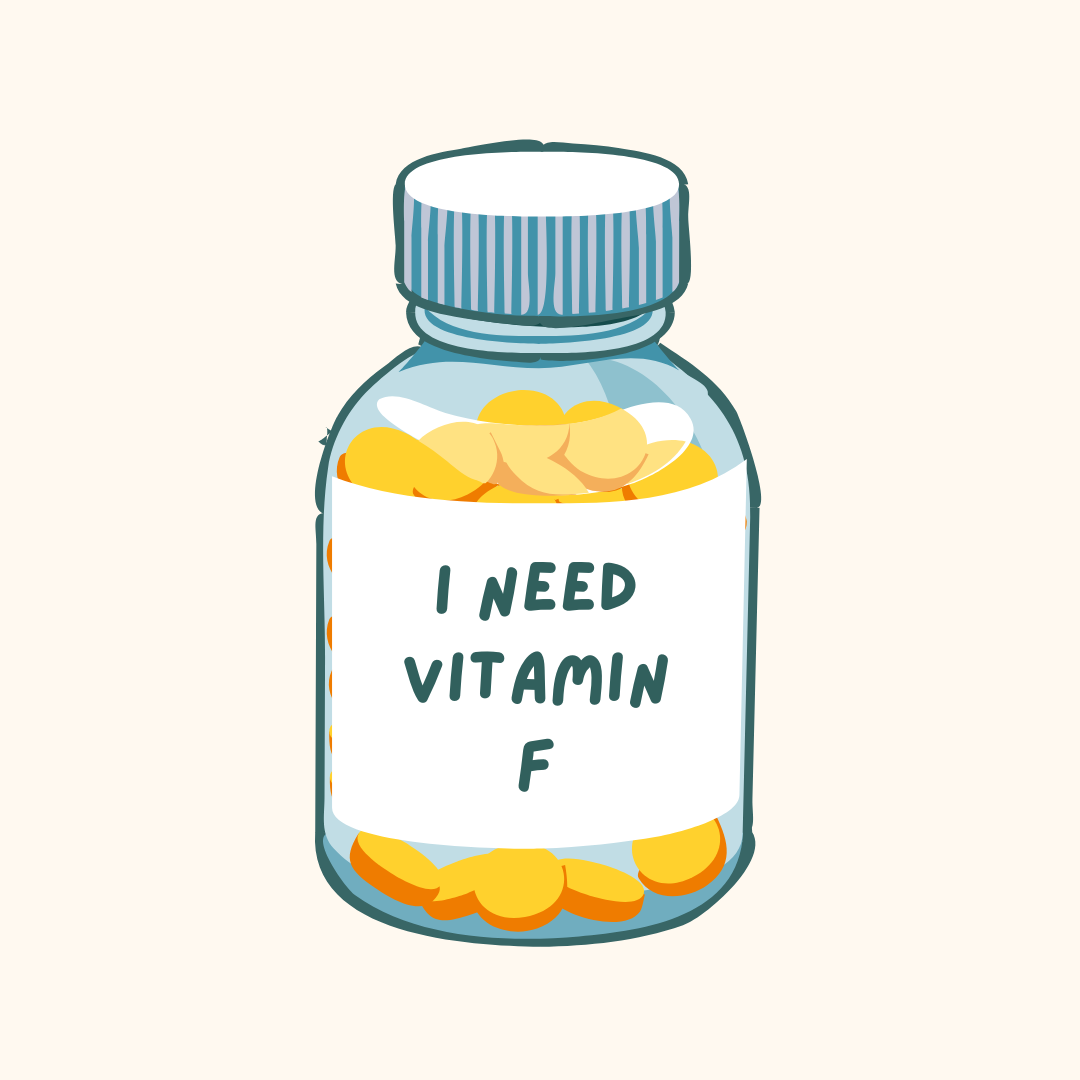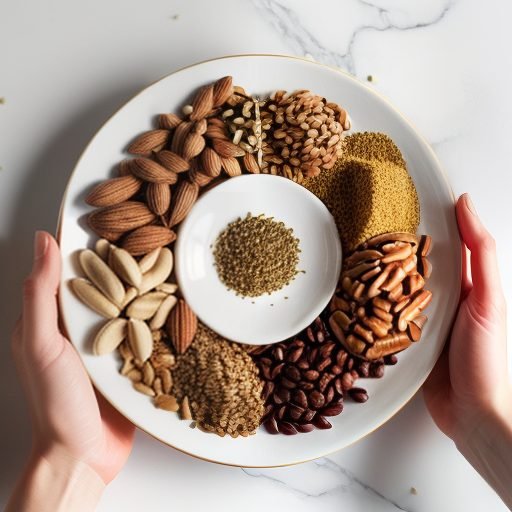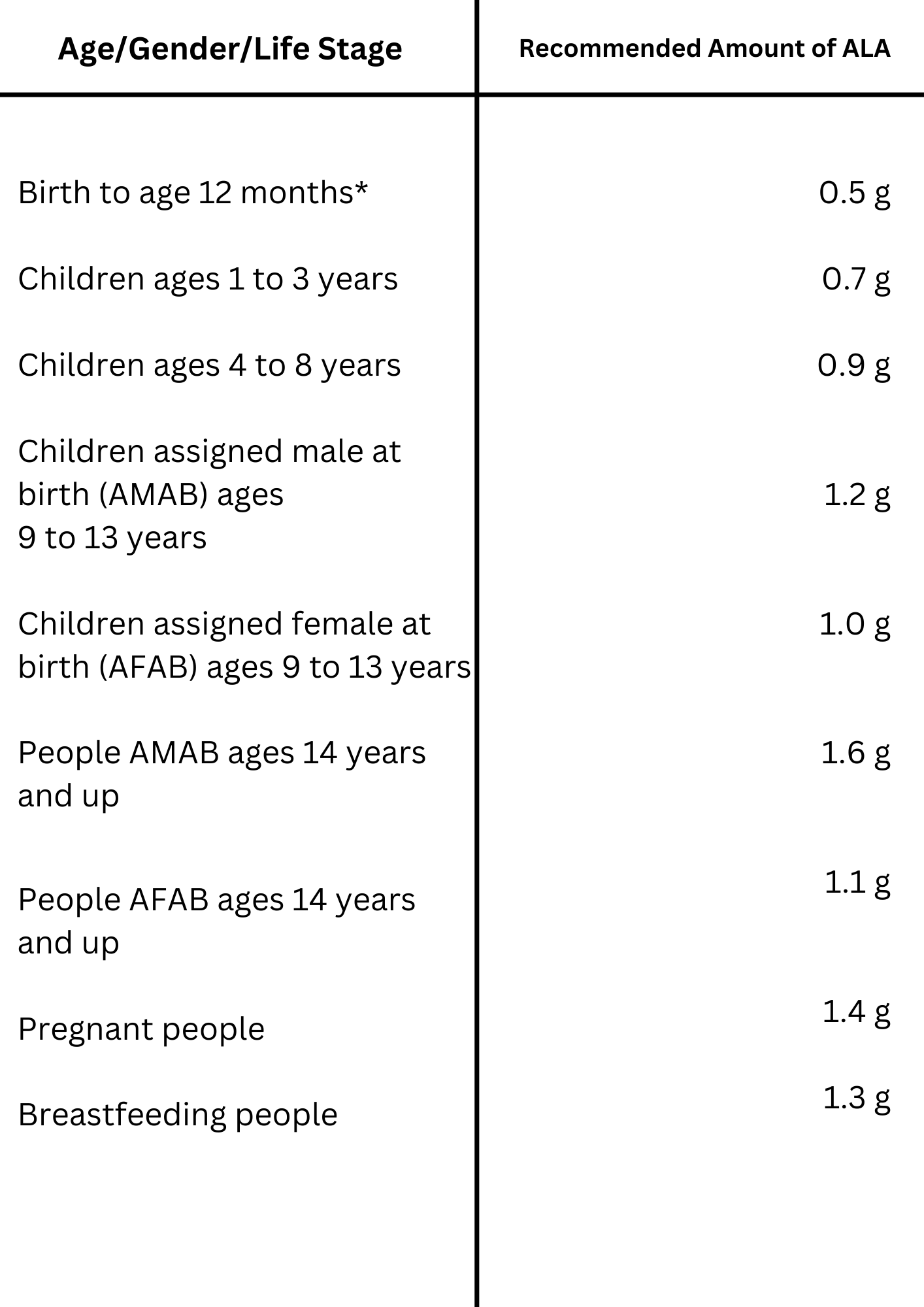Vegan Globetrotter is supported by our audience. When you purchase through one of our links, we may earn a small affiliate commission. As an Amazon Associate I earn from qualifying purchases. Your cost is not affected.
==================
Welcome to the world of Vitamin F – a group of essential fatty acids that play a crucial role in our health and well-being. These fatty acids, omega-3 and omega-6, are found in various plant-based foods like oils, nuts, and seeds. Our body relies on vitamin F to function properly, and growing evidence suggests it may have many other health benefits. In this discussion, we’ll explore why vitamin F is so important, where we can find it in our diet, and how it might positively impact our overall health. Understanding the significance of these essential fatty acids can help us make informed choices to lead healthier and more vibrant lives.
What is Vitamin F?
Vitamin F might sound like a vitamin, but it combines two special types of polyunsaturated fatty acids. These acids are alpha-linolenic acid (ALA) and linoleic acid (LA). The ALA is an omega-3 fatty acid, while LA is an omega-6 fatty acid. Scientists initially thought they had discovered a new vitamin in the 1920s and called it vitamin F, but later, they realized it was two essential fats.

Here’s the important part: ALA and LA are essential fatty acids because our bodies can’t produce enough on their own. We need these fatty acids to keep our bodies functioning properly. To ensure we get enough of them, we must include foods rich in ALA and LA in our diets since our bodies cannot produce them sufficiently.
How Body Use Vitamin F?

Vitamin F is essential for your body to carry out important functions. One of its significant roles is in maintaining the structure of your cells. The fatty acids found in vitamin F provide support and flexibility to the outer layer of your cells. Moreover, vitamin F plays a crucial part in promoting growth and development and assisting in the production of signaling compounds. These compounds regulate various bodily functions, such as blood pressure and the immune system. Additionally, vitamin F serves as a source of calories for your body. Both ALA and LA, the fatty acids in vitamin F, can be converted into other types of fatty acids that have their essential functions within your body.
Benefits of Vitamin F
Vitamin F, with its essential fatty acids, supports your body’s health. Ongoing studies suggest that it may offer a range of benefits, including:
Cardiac Health:
Vitamin F consumption may contribute to a healthy heart and help prevent issues like coronary heart disease. It might also help in reducing cholesterol levels in your blood.
Infant Development:
If you’re pregnant or breastfeeding, including low-mercury food in your diet, which is rich in vitamin F, may support fetal growth and brain development.
Brain Health:
Vitamin F might be associated with a reduced risk of conditions like Alzheimer’s disease, dementia, and other cognitive problems.
Mental Health:
Consuming fatty acids from vitamin F could help alleviate symptoms of depression and anxiety.
Eye Health:
Vitamin F is essential for the retina’s development and function and could relieve dry eye symptoms. It may also lower the risk of age-related macular degeneration.
Rheumatoid Arthritis (RA):
Vitamin F, when taken alongside RA medications, may assist in managing symptoms like inflammation in individuals with rheumatoid arthritis.
Benefits of Vitamin F for Skin

Vitamin F is a hydrator that protects the skin barrier and hydrates. Vitamin F reduces inflammation: Vitamin F is extremely useful for skin inflammation. Reduces the size of your skin by up to 25% when using topically applied linoleic acid.
Side Effects of Vitamin F

Vitamin F can cause no health complications if taken properly by a doctor. It is good for use either morning or evening if there’s vitamin / retinoin in this component. Because retinol or vitamins can cause redness or dryness. Hence, take caution.
Food Sources of Vitamin F

Vitamin F can be found in various foods, especially in plant-based sources that provide two important fatty acids: ALA and LA. Although many foods contain both, some have higher levels of one fatty acid than the other. Here are some natural sources of vitamin F:
- Nuts
- Seeds
- Oils
- Evening primrose oil
- Grape seed oil
- Almonds
- Avocados
- Sprout
- Wheat Gern
In addition to dietary sources, you can also get vitamin F through dietary supplements such as flaxseed oil and black currant oil. Moreover, you can apply vitamin F directly to your skin, as many skincare serums, oils, and creams contain this beneficial nutrient. Other sources of vitamin F include soybeans, tofu, green leafy vegetables, and kiwi fruit. Some foods are fortified with vitamin F, like certain dairy products, eggs, juices, and infant formulas.
Vitamin F Needs of the Body Based on Various Factors

Health Benefits of ALA
ALA belongs to the omega-3 family of fats, known for their potential health benefits. When present in the body, ALA can be converted into two other beneficial omega-3 fatty acids: EPA and DHA. Together, ALA, EPA, and DHA offer a range of potential health advantages:
Reduce Inflammation Consuming more omega-3 fats, including ALA, has decreased inflammation in various body parts, such as the joints, digestive tract, lungs, and brain.
Improve Heart Health While research findings are mixed, incorporating more ALA into your diet might help lower the risk of heart disease. In a study, every 1-gram increase in daily ALA consumption was linked to a 10% reduced risk of heart disease.
Aid Growth and Development Pregnant women require about 1.4 grams of ALA daily to support the healthy growth and development of the fetus.
Support Mental Health While further research is needed, some evidence suggests that regular intake of omega-3 fats, including ALA, may potentially improve symptoms of depression and anxiety.
Unlocking Vitality: The Imperative of Embracing Vitamin F for Holistic Health
Don’t underestimate the importance of including Vitamin F in your daily nutrition, specifically highlighting its crucial components, alpha-linolenic acid (ALA) and linoleic acid (LA). These essential fatty acids are integral for maintaining the structure of your cells, supporting growth, and aiding in the production of signaling compounds that regulate various bodily functions, including those crucial for brain and heart health. Neglecting to incorporate sufficient sources of Vitamin F, such as those found in soybean oil, may lead to potential issues like vitamin F deficiency. Beyond the nutritional aspect, the practical benefits extend to the potential management of gerd symptoms and the ability of alpha-linolenic acid to contribute to the regulation of blood pressure.

Furthermore, the significance of alpha-linolenic acid (ALA) goes beyond its dietary role. Studies suggest its potential to improve mental health by alleviating symptoms of depression and anxiety. This dual functionality of supporting physical health, including cardiovascular well-being and the potential to mitigate gerd symptoms, while also promoting mental health, underscores why skipping on Vitamin F, present in sources like soybean oil, could be detrimental. Incorporating this essential nutrient, which also contains alpha lipoic acid, into your daily dietary choices is a proactive measure for overall health and well-being, ensuring you strike the right balance and avoid potential complications associated with an inadequate intake of these vital fatty acids.
Bottomline

Vitamin F comprises two essential fatty acids your body needs to regulate properly. The good news is that these fatty acids can be naturally found in many foods you eat regularly. However, if you feel like you’re not getting enough vitamin F through your diet, supplements are available.
Vitamin F plays a role in brain development and may even help lower the risk of chronic health conditions. Before deciding to take a supplement, it’s essential to consult with your healthcare provider first. They can give you personalized advice on whether adding a vitamin F supplement to your daily routine is appropriate for your health needs.
Taking care of your body’s nutritional needs is important, and discussing supplements with your healthcare provider ensures you make informed decisions about your well-being.
FAQs
Can I get enough Vitamin F from my diet alone?
A balanced diet that includes a variety of foods rich in both omega-3 and omega-6 fatty acids can provide enough F Vitamins for most individuals. However, some people may consider supplements if they have specific dietary restrictions or health conditions that hinder proper nutrient intake.
Are there any risks associated with Vitamin F supplementation?
While getting it from food sources is generally safe, taking high-dose supplements without medical supervision may lead to adverse effects. It’s essential to consult a healthcare provider before starting any supplement regimen.
Can I take Vitamin F supplements with other medications?
If you are currently taking any medications, it’s important to consult your healthcare provider before adding the supplements to your routine to avoid potential interactions or adverse effects.
Can Vitamin F supplements replace a healthy diet?
The supplements should not be considered a substitute for a well-balanced diet. A varied diet with natural food sources remains the best way to obtain essential nutrients, including omega-3 and omega-6 fatty acids.
🌱 Explore the Vegan Lifestyle: Join Us on Social Media! 🍉🌽
👉 Engaging Content: Follow us on Facebook, Instagram, Pinterest, and Twitter for exciting posts about fruits, veggies, and the vibrant vegan world.
👉 Product Reviews: Discover honest reviews on plant-based products and delicious vegan recipes.
👉 Connect with a Community: Join our passionate community of vegan enthusiasts, share your experiences, and learn from like-minded individuals.
📌 Find us on Social Media:
🔹 Facebook: https://www.facebook.com/VeganGlobetrotter
🔹 Instagram: https://www.instagram.com/_veganglobetrotter/
🔹 Pinterest: https://www.pinterest.com/theveganglobetrotter
🔹 Twitter: https://twitter.com/VeganGlobetrot
🌍 Let’s embark on a vegan journey together! 🌱🌏



Don't miss out
when new recipes and information are added!
Join our newsletter for free recipes,
healthy living inspiration, and special offers
You have Successfully Subscribed!